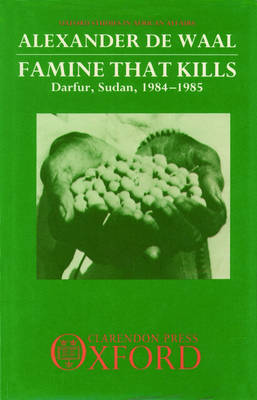Oxford Studies in African Affairs
1 total work
A study based on detailed field research during the terrible famine of 1984-85 in the Darfur region of Sudan. The author analyzes the famine from the perspective of the rural people who suffered it and in the process uncovers a number of new and important insights. When news of the famine broke in the West, relief experts predicted that, without massive food aid, millions of people would starve to death. Food aid on this scale did not arrive in time, but millions did not starve. Dr de Waal argues that deaths during the famine were not in fact due to starvation, but instead were caused by outbreaks of disease which followed the social disruption brought about by the famine. In addition, the priority for rural people during the crisis was not to try to save every possible life, but instead to preserve their way of life for the future. Consequently, he concludes, the huge international famine relief effort was largely irrelevant to their survival. It recounts the untold story of the Sudanese famine: how rural Sudanese were able to survive on their own resources, using skill, local knowledge, and immense tenacity.
It is a multi-disciplinary study using methods and evidence from social anthropology, history, economics, geography and epidomology. Dr de Waal's findings have profound implications, not just for famine-relief policies, but for our very conception of famine itself.
It is a multi-disciplinary study using methods and evidence from social anthropology, history, economics, geography and epidomology. Dr de Waal's findings have profound implications, not just for famine-relief policies, but for our very conception of famine itself.
